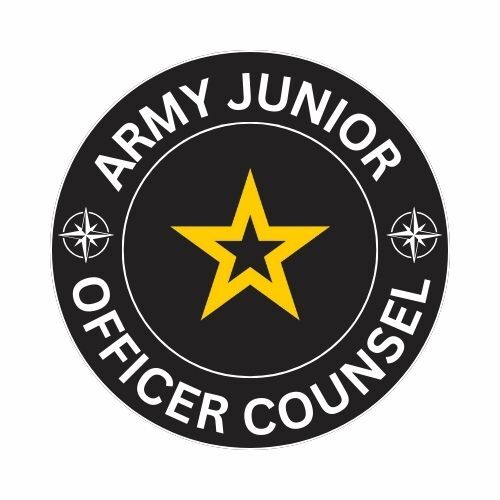Student to Lieutenant Series – Part 3: BOLC and Follow-on Schools
Warriors, We’re continuing our discussion thread in the series “Student to Lieutenant.
Phase 1: Receiving your #Branch to #Commissioning
Phase 2: #Commissioning to Reporting to #BOLC
Phase 3: Graduating #BOLC & Follow-on Schools
Phase 4: Arriving at your first Unit & first Assignment

First things first, I’m going to ask you to do something no self-respecting “type-A” personality or engineer would ever consider doing… READ THE INSTRUCTIONS! A copy of assignment orders can look overwhelming. The formatting on these things screams, “This is just like the ‘Terms of Use’ agreements. Nothing important here. Just click ‘Agree’ and move on.” Unfortunately, in the Army, there are important instructions in those orders. You need to read them line by line. Highlight, make notes, ask questions about what certain instructions mean. Sometimes, the orders include web addresses for ADDITIONAL instructions. Treat these orders like your college final exams, Step 1: #RTFQ.
Next, common sense, be a professional. “Reporting” is arriving for your first day of work with your new employer. It is not returning to your college greek house after Spring Break. No beards. No ripped up jeans. No weird face piercings or dyed hair… Wear the “duty uniform” when you report (commonly ACUs, but some installations mandate Dress B’s on certain days of the week. If you go on post and everyone is wearing something different from you, you’re wrong.). Report during business hours — here’s why: If you go after business hours, the individual and systems specifically designed for the reception of new officers have been shut down for the day. The ARMY runs 24/7, but each office/Soldier doesn’t stay at their desk all the time. Arrive during business hours so you can meet the in-processing NCOIC and/or the S1 (personnel) shop and/or the Snowbird/Blackbird formation filled with peers with valuable information. If you arrive outside of business hours you will the meet the duty officer, which at BOLC, is probably one of your peers that doesn’t have all the information you need.
Bonus points, the BOLC “Go-Bag.” BOLC can be fluid… an outside agency that was supposed to give you a class on Property Management cancels and now that time slot is filled with Land Navigation… Keep the following items in your car and you’ll always be ready: spare set of ACUs with patches already attached, your beret, spare patrol cap, “beanie” cap, one piece of your preference for “snivel” top, full set of PTs including spare reflective belt, multi-tool, lighter, 3-4 snack bars, water.

Okay, finally, in journalism they call this “burying the lead” — when the coolest part of the article gets stuck at the bottom. Let’s talk about being “pro-active” as a new BOLC officer. This booger of wisdom will seem contradictory. So, “trust me now, believe me later.” Being “pro-active” is when you do something that benefits the unit. When you do something that benefits you most directly, that’s “self-serving” (I did NOT say “selfish”). No negative connotation intended here. You have the right intention. You’re just a smidge off on the execution. How does this relate to this topic?
Inevitably, some BOLC reportees will get excited and anxious and inadvertently become self-serving. They go to the finance office on their own, then they go to Cool Guy School and ask to have a slot reserved for them after they graduate from BOLC then they go to clothing and sales and buy every patch on the wall… When a Leader (usually an NCO) finally gets some reigns on the young Warrior and says, “whoa, little pony, you’re at full gallop and we need you at a trot right now…” the young Warrior will reply (with some disdain), “I was just trying to be ‘pro-active’ like a good Officer…” What the young Warrior did NOT know, (again, subtle difference) is these actions were not “pro-active.” They were “self-serving,” and their BOLC already had scheduled finance briefs for groups of 10 or more, because it’s more organizationally efficient, there are limited slots to Cool Guy School and those go to the BOLC Honor Graduates, and there’s a brief on Day 1 about which patches to buy and wear during BOLC…
So, what’s the “pro-active” version of these well-intentioned efforts? Visit the sites on the in-processing schedule and “pin” them on your smart device. Then, send those pins to your BOLC classmates to help everyone get to the right place at the right time. Do research about follow-on school opportunities (course dates, pre-requisites, required documentation) and send this information to all of your classmates so everyone knows what opportunities MIGHT be available. Create a “WhatsApp” group message for all your classmates to help everyone exchange information in real time. Bottom line: if it takes a not insignificant amount of your personal time, but the primary beneficiary of the action is a larger group, that’s being “pro-active.”
Closing comment, check-out the attached document (below) that I borrowed from another JOF post. It’s got lots of awesome #protips. Pay attention to #3 and #6. That will be the topic of next week’s post. BOLC Operating Expenses and Where to Live.
Like what you read here? Send me a comment to let me know this is the type of post you want to see.
Disagree? Let me know in the comments. Help me get dialed in and, “fire for effect.”
Attachments:
Things I wish I knew as a lieutenant in TRADOC
~Jeff
The Student-to-Lieutenant Series
Part 1 – Phase 1: Receiving your Branch
Part 2 – Phase 2: Commissioning and Reporting to BOLC (Snowbird Status)
Part 3 – BOLC and Follow-on Schools
Part 4 – Operating Expenses and Where to Live
Part 5 – Operating Expenses and Where to Live (part 2)
Part 6 – Phase 3: Graduating BOLC & Follow-on Schools
Part 7 – Phase 4: Reporting to your First Unit



